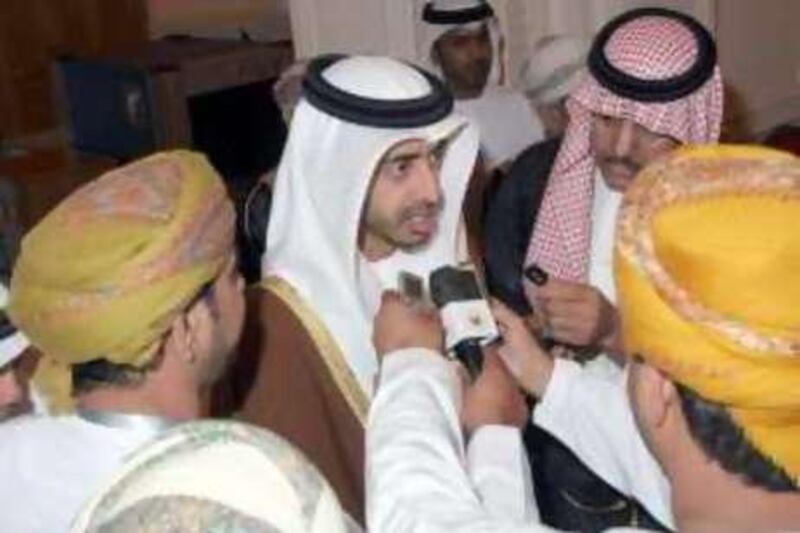MUSCAT // The UAE and its GCC counterparts last night called for international pressure on Israel to stop its attacks on Gaza, as the leaders of the six GCC nations prepared for their summit in Oman today. "We have discussed the measures that can be taken at the Arab and international levels," Sheikh Abdullah bin Zayed, the Foreign Minister, said after a five-hour meeting with his GCC counterparts. "We hope that there will be sensible voices capable of pressuring Israel to stop this brutal aggression."
Oman's foreign minister, Yusuf bin Alawi bin Abdullah, said at a press conference: "Everyone feels the Palestinian pain in the West Bank and Gaza. These are critical moments and every one should know that the Arab leaders will exert all their efforts to support the steadfastness of the Palestinian people." Mr Abdullah said the GCC foreign ministers had adopted views that would contribute to the meeting of Arab foreign ministers on Wednesday in Cairo.
Prince Saud al Faisal, the Saudi foreign minister, said that Gaza would figure "very high" in today's summit agenda. The leaders are expected to discuss such issues as a common GCC currency, the international financial crisis, low oil prices and Iran. The GCC's secretary general Abdulrahman al Attiyah said a final plan for a Gulf monetary union, under which a unified Gulf monetary council and a single currency would be created, would be submitted to the GCC national leaders during today's meeting.
Mohamed al Mazrooei, an assistant to the GCC secretary general for economic affairs, said the UAE, Saudi Arabia, Qatar and Bahrain had submitted proposals to host the council. Mustafa Alani, the programme director for the Gulf Research Council in Dubai, said the lack of a clear approach towards Iran by the incoming US administration was an issue that would concern the GCC leaders the most. "Iran is going to be the elephant in the room," Dr Alani said. "The concern is how America is going to deal with the Iranian policy of interference and its nuclear programme.
"The GCC states are worried that any concessions by the US to Iran will be on their own expense. "Any warming of US-Iranian relations affects the region's interests." The leaders will discuss the global financial crisis and low oil prices, "but I think they won't agree on one policy in this regard". Another analyst, Suleiman Nimr, a columnist in Saudi Arabia, said that he did not expect the GCC leaders to announce any position on Gaza, in favour of waiting for the Arab League summit called by Qatar and Syria.
"The GCC countries prefer a unified Arab position," he said. The Omani royal court said in a statement that the heads of the six GCC nations would discuss measures that "would lead to further co-operation among GCC states". According to Oman's state news agency, the summit would also discuss the tensions between India and Pakistan in the aftermath of the attacks in Mumbai. Meanwhile, GCC officials denounced the continuing Israeli attacks. Fahd bin Mahmoud al Saeed, Oman's deputy prime minister, said the sultanate "condemns the Israeli aggression on the Palestinian people and excessive use of force".
"We assert that this method is rejected and will not solve any issue," he said, according to the Oman state news agency. Violence, he said, "adds to the tension and instability in the region and just and comprehensive peace will not be achieved but through the negotiation table". The GCC, formed during a summit in Abu Dhabi in 1981, promotes co-operation between members through collective security. In 1984, the GCC created a collective defence force, the Saudi-based Peninsula Shield.
But the group's most successful projects were economic, including the establishment of a customs union in 2003 and a common market in 2007. In 2001, the GCC states announced plans to form a monetary union by 2010. mhabboush@thenational.ae * With additional reporting by Travis Pantin





